Investing in Innovative Growth
Akira Segawa, President of Fujita Kanko Inc.
Related Trend Reports
Architecture, Art & Design, Customization, Furniture, Health, Hip Hotels, Home, Life, Luxury, Mobile, Modern, Pop Culture, Social Media, Tech, Travel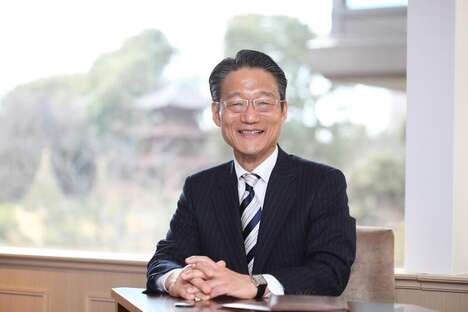 Recently appointed as the new President of the Fujita Kanko hospitality company, Akira Segawa is in charge of carrying on the legacy of his forbearers for the 60-year-old hotel company. Known across Japan as having some of the most upscale and luxurious properties, Fujita Kanko Inc. is aimed towards globalizing its popularity and exquisite reputation by, as a recent press release states, "welcoming more international travelers, and also [starting to build] local business in other markets outside of Japan." With many investments into its future, including 7 billion yen to renovate its iconic flagship property, Hotel Chinzanso Tokyo, exciting changes and advances are just over the horizon for Fujita Kanko.
Recently appointed as the new President of the Fujita Kanko hospitality company, Akira Segawa is in charge of carrying on the legacy of his forbearers for the 60-year-old hotel company. Known across Japan as having some of the most upscale and luxurious properties, Fujita Kanko Inc. is aimed towards globalizing its popularity and exquisite reputation by, as a recent press release states, "welcoming more international travelers, and also [starting to build] local business in other markets outside of Japan." With many investments into its future, including 7 billion yen to renovate its iconic flagship property, Hotel Chinzanso Tokyo, exciting changes and advances are just over the horizon for Fujita Kanko.Four Questions with Mr. Akira Segawa:
1. How do you motivate your team to come up with good ideas?
As a hospitality company, Fujita Kanko Inc. is quite unique. Not only do we have multiple brands and individual properties, ranging from affordable business hotels to an exquisite one-of-a-kind luxury urban resort, our flagship Hotel Chinzanso Tokyo, we also operate a broad range of business units from hotels to leisure facilities such as hot springs and an aquarium. The core of our business is hospitality. Each business unit has its own marketing and planning team under an umbrella planning and strategy team at the headquarters. While each unit constantly comes up with new ideas for their brands/business operations, the umbrella team absorbs and digests them, and that process often bores seeds- ideas for new business or for improving business. That is how our company has been evolving for 60 years. Also, our employees are rotated around the organization to different units and departments, so each of them gains various experiences while the organization circulates new blood all the time. I think that’s how we remain fresh yet traditional. One additional thing we have going for us is the extreme detail-oriented attitude of Japanese employees – it's part of our culture. They are trained to notice every little detail, and that also leads to thinking of better ways to do things!
2. How do you ensure you're getting trends/insights information that your competitors aren't getting?
I was appointed president about a year ago. The first thing I did as president was to visit all of our properties and talk with our staff members, who interact with our clients every day. For me, our employees are the best resources and I trust their antennas for consumer insights. After all, our employees are also consumers, and since we run top luxury hotels, they become very demanding and discriminating consumers. In fact, some are real trendsetters. Obviously, like other competitive hospitality companies, we have our radar everywhere possible seeking out what's new and what's got potential to be very popular. We utilize various online/marketing tools; monitor traditional media/social media; read customer reviews; and analyze feedback from hotel guests, suppliers, travel agencies and other stakeholders; and of course we keep our eyes open when we go to trade shows and industry meetings.
Although our 60 properties are all located in Japan and we don't have any overseas properties at this point, our marketing reach is quite global. In the past two years, we've opened four sales offices in China, Korea, Taiwan and Singapore, and we are eager to globalize further. More than 10 million people around the world visited Japan in 2013 and Asia is a strong inbound market for us. We gain real insights from reports we get from our sales offices that helps us understand each market's needs and trends. We also use PR services in the U.S. to help us monitor the industry trends globally.
3. What makes an innovative culture? How do you create a culture of innovation?
When you think about innovation, you normally think about something new. Although I don't deny that, what makes Fujita Kanko unique and competitive is that we are true to our core values and traditions first. In that way we embody the culture of Japan, which is a mixture of ancient and modern that has resulted in a unique, even innovative culture. For example, our flagship property, Hotel Chinzanso Tokyo, has a history going back hundreds of years, but it also offers state-of-the-art amenities and products and services that appeal to trendsetters. We know that the essence of what sets us apart from our competitors is the authentic traditional Japanese culture and hospitality we offer. Knowing who you are doesn't limit you but enables you to reinvent yourself and evolve, to be creative and innovative. More so than ever, travelers are looking for authentic experiences abroad, and international visitors come to Japan looking for an authentic, old-world experience, even in Tokyo, which is an incubator of the newest fashions, technologies and street cultures.
We constantly collaborate with companies in other industries to come up with new products and services. For instance, we've recently created guest rooms with a special theme, 'the science of sleep,' in partnership with a medical device company. There are many companies, overseas and in Japan, that have innovative technologies in multiple areas and we are constantly thinking about how we can utilize their innovations in our business. Speaking of another industry, I am also a good example. I have a unique background for the head of a big hospitality company. Before joining Fujita Kanko, I spent 30 years in the financial industry, and I was in charge of restructuring and rebuilding various entities, which trained me to be a skilled manager. I bring in a different point of view from others who have been in the hospitality industry for their whole careers, and I'm certainly using the skills I learned in financial services to bring some innovative practices to our business at Fujita Kanko.
4. Looking to the future, how will you continue to be a leader in innovation?
Our Washington Hotel brand is a pioneer in the Japanese business hotel market. Before the first Washington Hotel opened, there were no hotels that could meet the needs of business people in terms of cost and services in Japan. To minimize operating costs and improve efficiency, we've also developed new features, such as the world's first automated check-in/check-out system. I believe we've been able to offer new products and services to meet the changing demands of consumers because not only do we listen to them, but we also anticipate their needs before they are aware of them themselves. We use our experience, knowledge and imagination to do that. We are looking forward to hosting international visitors for the 2020 Tokyo Olympics. All of our employees are very excited about that and looking forward to hosting a very diverse group of visitors. They are talking about it a lot already, and I guarantee you'll see some innovations from us for that special occasion.
References: fujita-kanko
Featured Articles
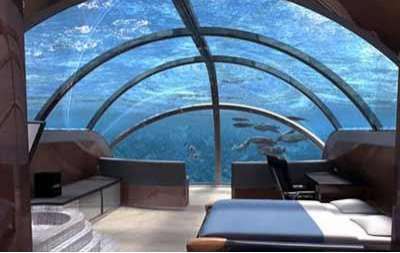
Hotels as Destinations
Accommodations that offer exotic experiences along with a bed
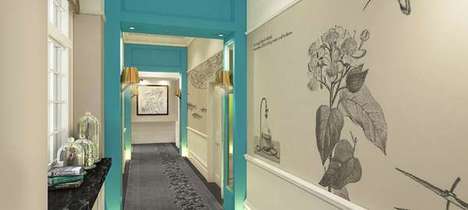
Artistic Accommodations
Hotels add culture to comfort with artistic additions
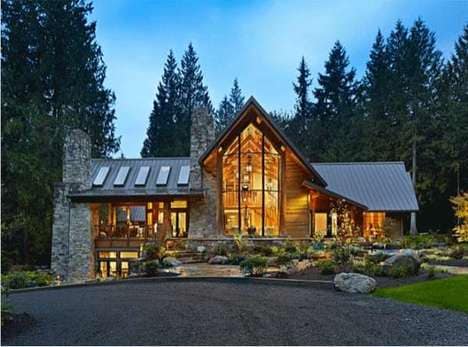
Ecotels
Green accommodations appeal to environmentally conscious travelers
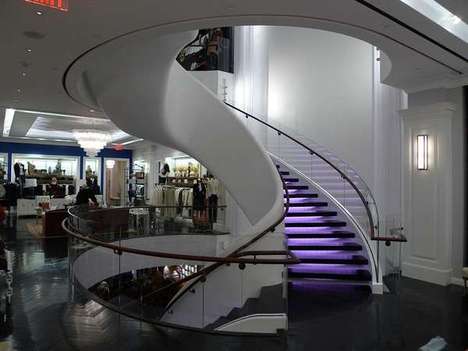
Fauxloating Design
Fake levitation gives stale interior decor a much-needed aesthetic lift
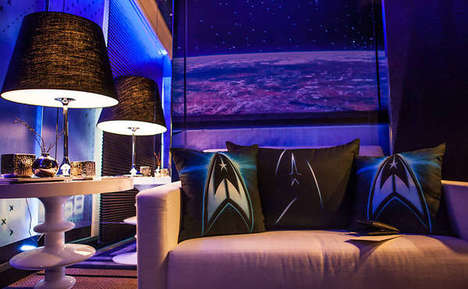
Cinematic Travel
Movie-themed hotels offer guests a more immersive travel experience
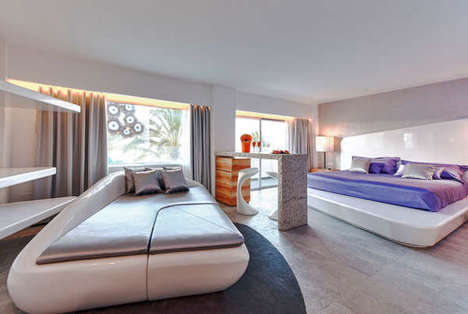
Connected Accommodation
Hotels increase tech integration to broaden international market appeal
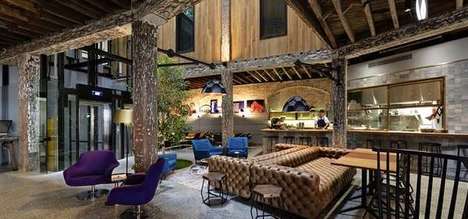
Social Travel
Hotels and airlines boost social media engagement to increase community

Health-Conscious Accommodation
Holistic health is incorporated into vacationing